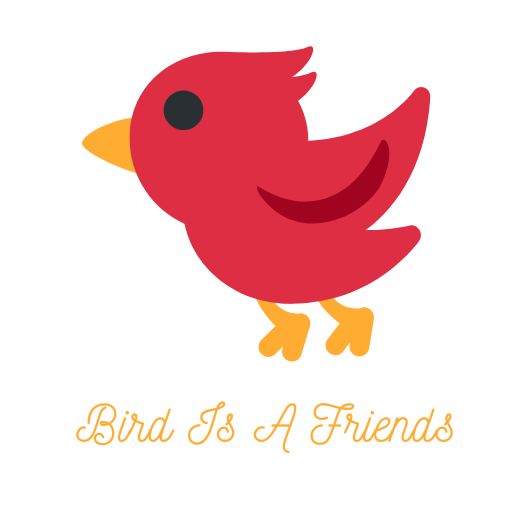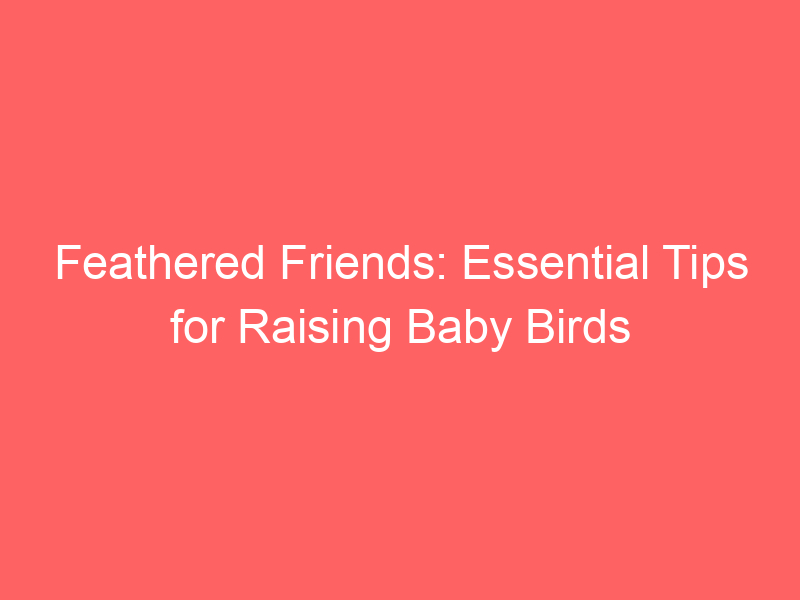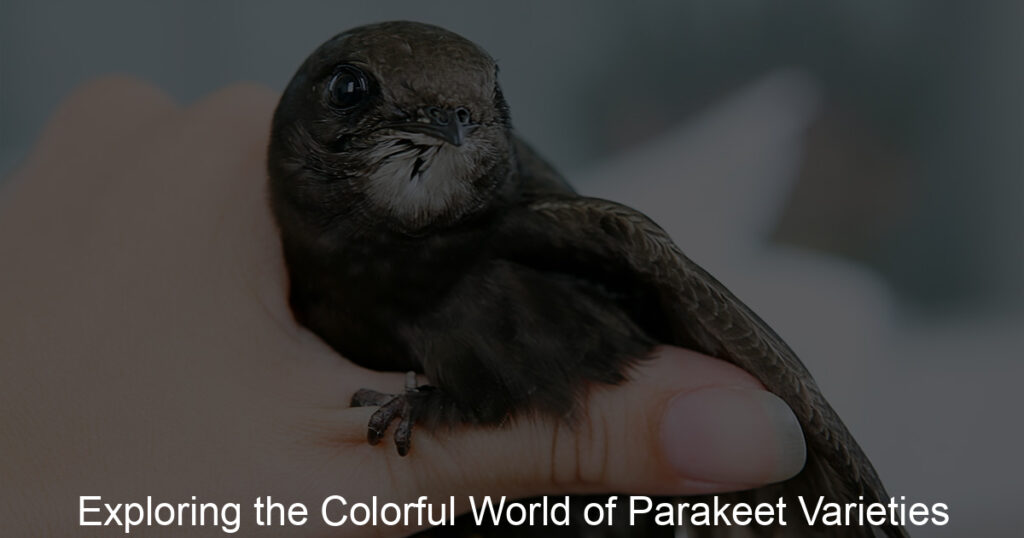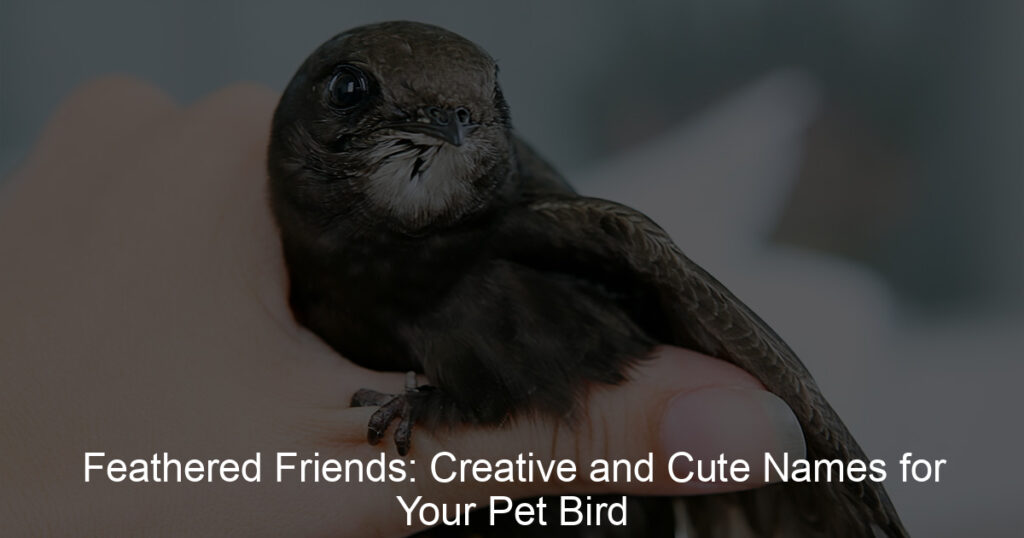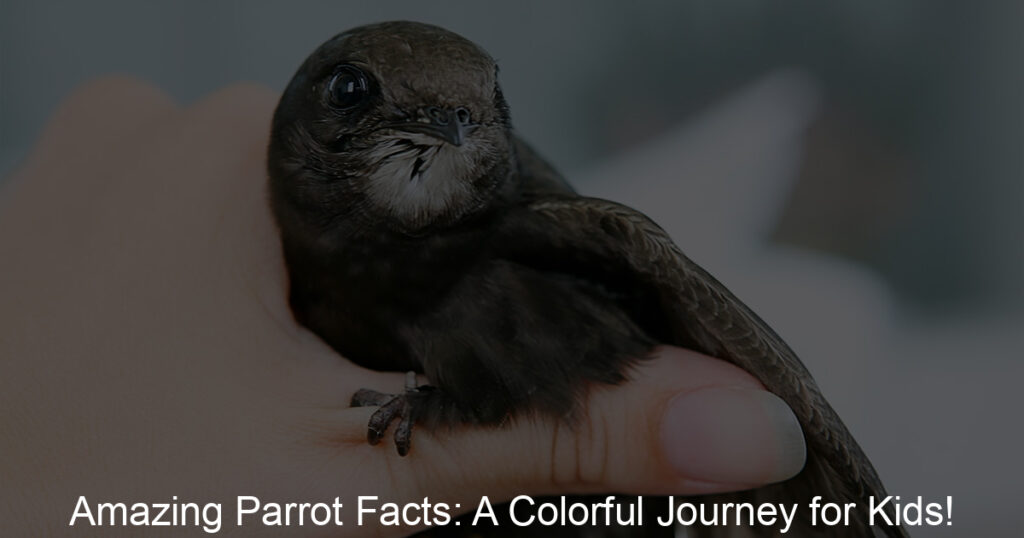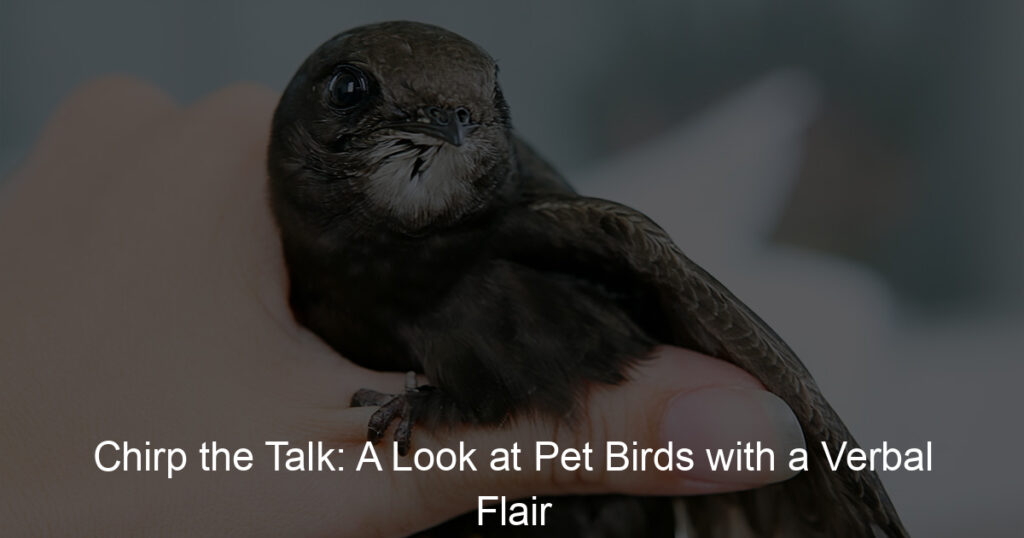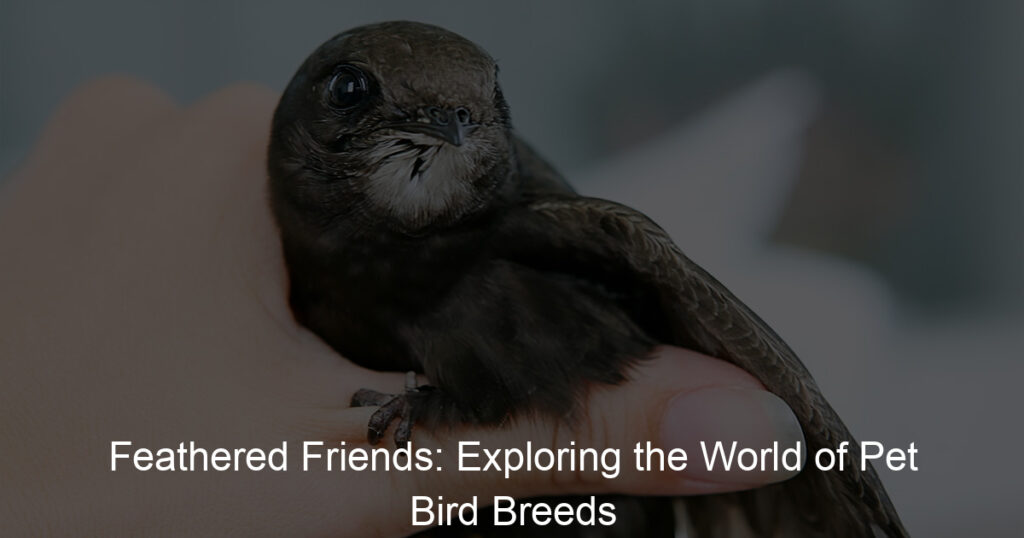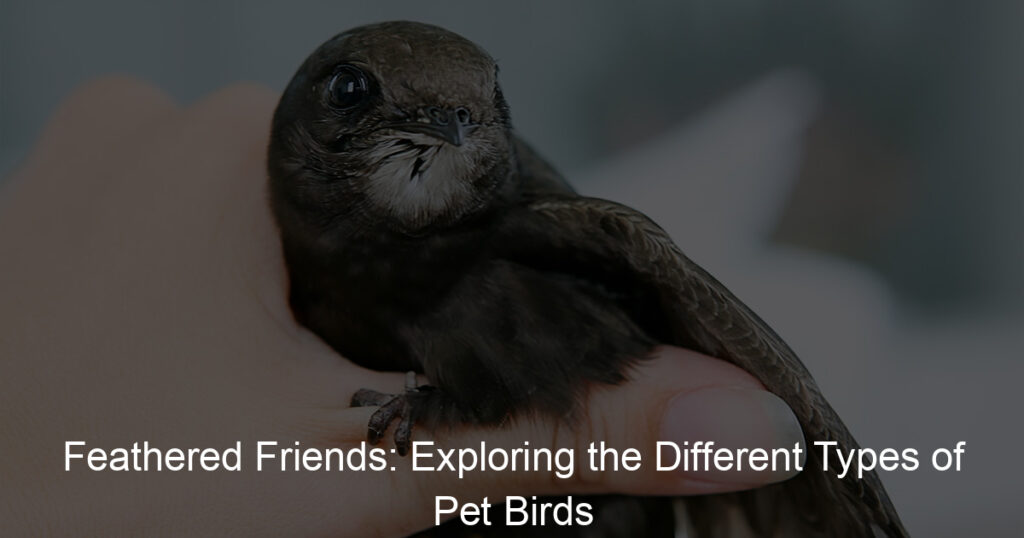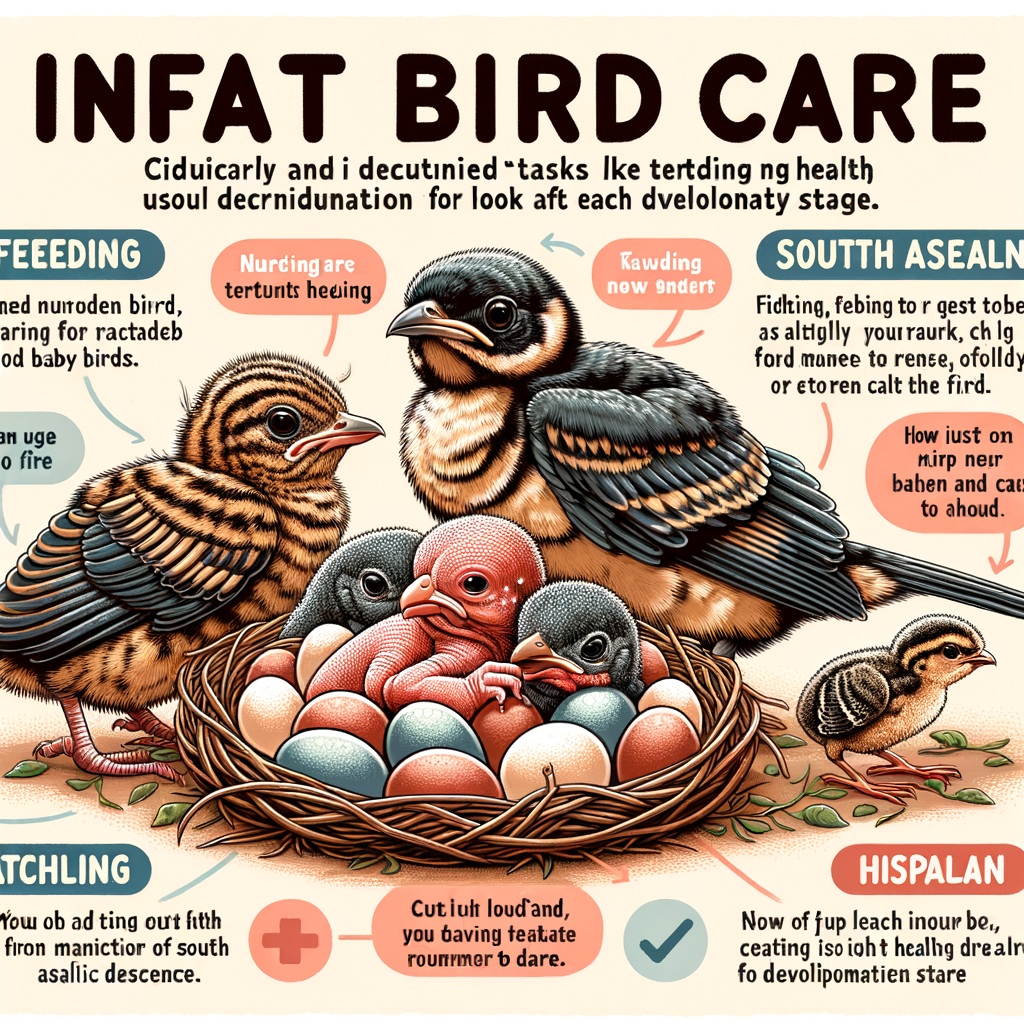
Introduction to Raising Young Birds
Welcome to the fascinating world of raising young birds. This is a journey filled with joy, learning, and a deep sense of fulfillment. However, it’s also a journey that requires commitment, knowledge, and a lot of care. In this section, we will explore the commitment required to raise baby birds and the importance of their proper care.
- Understanding the commitment of raising baby birds
- Importance of proper care for young birds
Raising young birds is not a task to be taken lightly. It requires a significant amount of time, effort, and resources. Baby birds need to be fed several times a day, their living environment needs to be kept clean and safe, and their health needs to be monitored closely. This is a full-time commitment that can last several weeks to a few months, depending on the species of the bird. It’s important to understand this commitment before deciding to raise baby birds.
Proper care is crucial for the survival and well-being of young birds. This includes providing them with the right diet, ensuring they are kept in a suitable environment, and taking care of their health. Improper care can lead to health issues, stunted growth, or even death. Therefore, it’s critical to learn about the specific needs of the bird species you are raising and provide them with the care they need.
In the following sections, we will delve deeper into the specifics of raising baby birds, including a comprehensive guide on getting started, feeding, health, and hygiene. We hope this information will help you on your journey of raising young birds, bringing you joy and a sense of accomplishment.
Baby Bird Care Guide: Getting Started
When it comes to raising baby birds, creating a suitable environment is crucial. This guide will help you understand the essentials of setting up a comfortable, stimulating environment for your feathered friends.
Setting Up a Suitable Environment
Setting up a suitable environment for your baby bird involves three key steps. These steps are choosing the right cage, creating a comfortable nest, and providing toys and stimulation.
- Choosing the right cage
- Creating a comfortable nest
- Providing toys and stimulation
The cage you choose for your baby bird should be spacious enough to allow them to move around comfortably. It should also have a secure door to prevent the bird from escaping. The bars of the cage should be close enough together to prevent the bird from getting its head stuck. A cage with a removable bottom tray will make cleaning easier.
A comfortable nest is essential for a baby bird’s wellbeing. You can create a nest using soft materials like shredded paper or straw. The nest should be big enough for the bird but not so big that it feels insecure. Ensure the nest is placed in a quiet, safe corner of the cage.
Baby birds need mental stimulation to develop properly. Toys can provide this stimulation. Choose toys that are safe for birds, such as bells, mirrors, and chewable items. Rotate the toys regularly to keep the bird interested. Remember, a bored bird can become a stressed bird.
In conclusion, setting up a suitable environment for your baby bird requires careful consideration. The right cage, a comfortable nest, and appropriate toys can make a significant difference in your bird’s health and happiness. Remember, a happy bird is a healthy bird.
Understanding Bird Hatchling Care Tips
When it comes to caring for bird hatchlings, there are several key aspects to consider. These include how to handle newborn birds, how to keep them warm, and how to monitor their growth. Let’s delve into these topics to ensure you’re well-equipped to provide the best care for your feathered friends.
- Handling Newborn Birds
- Keeping the Hatchling Warm
- Monitoring the Bird’s Growth
Handling newborn birds requires a delicate touch. It’s important to remember that hatchlings are fragile, and any rough handling can cause injury. Always wash your hands before touching a bird to prevent the spread of diseases. If you need to handle a bird, do so gently and for a short period of time.
Keeping a bird hatchling warm is crucial for its survival. In the wild, mother birds use their bodies to keep their babies warm. In a home setting, you can use a heating pad or a lamp to maintain a consistent temperature. The ideal temperature varies depending on the species, but generally, it should be around 95 degrees Fahrenheit for the first week, then gradually reduced by 5 degrees each week thereafter.
Monitoring a bird’s growth is essential to ensure it’s developing properly. You can track its weight using a small scale, observe its feather development, and watch for changes in behavior. A healthy bird should steadily gain weight, develop feathers at the expected rate, and become more active as it grows.
| Week | Temperature |
|---|---|
| 1 | 95 degrees Fahrenheit |
| 2 | 90 degrees Fahrenheit |
| 3 | 85 degrees Fahrenheit |
| 4 | 80 degrees Fahrenheit |
In conclusion, caring for bird hatchlings is a delicate task that requires careful handling, maintaining the right temperature, and monitoring growth. With these tips, you can ensure your baby birds grow up healthy and strong.
How to Raise Baby Birds: Feeding
Feeding is a crucial aspect of raising baby birds. It’s not just about providing food, but ensuring the right kind of food is given at the right time and in the right way. Let’s dive into some helpful tips on feeding baby birds.
Baby Bird Feeding Tips
Here are some essential tips to keep in mind when feeding baby birds:
- Understanding the bird’s diet
- How often to feed baby birds
- Proper feeding techniques
Every bird species has a unique diet. Some birds are insectivores, meaning they eat insects. Others are granivores and eat seeds. It’s important to research and understand what your baby bird’s species naturally eats in the wild. This will help you provide the right nutrition for them.
Baby birds need to be fed frequently. Newborns typically need feeding every 15 to 20 minutes from dawn to dusk. As they grow older, the frequency decreases. Remember, overfeeding can be just as harmful as underfeeding, so it’s important to strike a balance.
Feeding baby birds is not the same as feeding adult birds. You need to be gentle and patient. Use a small, soft-tipped feeding instrument like a syringe or a small spoon. Make sure the food is not too hot or too cold. Always feed the bird in an upright position to prevent food from going into the lungs.
In conclusion, feeding baby birds requires knowledge, patience, and care. By understanding their diet, knowing how often to feed them, and using proper feeding techniques, you can ensure your baby birds grow up healthy and strong.
| Bird Type | Diet | Feeding Frequency |
|---|---|---|
| Insectivores | Insects | Every 15-20 minutes |
| Granivores | Seeds | Every 30-45 minutes |
Remember, every bird is unique. Always monitor your bird’s behavior and adjust the feeding routine as necessary. Happy bird raising!
Young Bird Care: Health and Hygiene
When it comes to raising young birds, health and hygiene are of utmost importance. In this section, we will delve into the crucial aspects of baby bird health care, including recognizing signs of illness, the importance of regular vet check-ups, and why vaccinations are vital.
Baby Bird Health Care
Just like human babies, baby birds also require special care and attention to ensure they grow up healthy and strong. Here are some key points to remember:
- Recognizing signs of illness: Baby birds can’t tell us when they’re feeling unwell, so it’s up to us to spot the signs. Some common signs of illness in baby birds include lack of appetite, lethargy, ruffled feathers, and changes in droppings. If you notice any of these signs, it’s important to seek veterinary care immediately.
- Regular vet check-ups: Regular vet check-ups are crucial for baby bird health. These check-ups allow the vet to monitor the bird’s growth and development, and catch any potential health issues early. It’s recommended to have your baby bird checked by a vet at least once every six months.
- Importance of vaccinations: Vaccinations play a crucial role in protecting your baby bird from various diseases. Vaccines help to strengthen the bird’s immune system and prepare it to fight off potential infections. Your vet can guide you on the necessary vaccinations for your bird, based on its species and age.
Remember, a healthy bird is a happy bird. By taking the necessary steps to ensure your baby bird’s health and hygiene, you’re setting them up for a long, happy, and healthy life.
Caring for Fledgling Birds
When baby birds reach the fledgling stage, they are on the cusp of independence. This phase is crucial, and as a caregiver, your role shifts from providing constant care to preparing them for life in the wild. Let’s delve into the key aspects of caring for fledgling birds.
- Understanding the Fledgling Stage
- Teaching the Bird to Fly
- Preparing for the Bird’s Independence
The fledgling stage is a significant milestone in a bird’s life. This is when they start to explore the world outside their nest. They may still be fed by their parents, but they are also learning to find food on their own. It’s important to remember that fledglings are still learning, and they may not be perfect at flying or finding food right away. Patience and gentle guidance are key during this stage.
Teaching a bird to fly is a delicate process. It’s not about pushing them out of the nest and hoping for the best. Instead, it’s about providing a safe environment where they can practice their flying skills. You can encourage them by placing them on a low branch and enticing them to fly to you with food. Remember, every bird learns at their own pace, so don’t rush the process.
As the fledgling bird becomes more confident in their flying and foraging skills, it’s time to prepare them for independence. Start by reducing the amount of food you provide, encouraging them to forage more. You can also introduce them to safe outdoor spaces under your supervision. Gradually, the bird will become more self-reliant and ready to face the world on their own.
In conclusion, caring for fledgling birds requires understanding, patience, and a gradual approach to independence. It’s a rewarding process that allows you to witness the incredible transformation of these young creatures into fully-fledged birds.
Conclusion: The Joy of Raising Baby Birds
As we draw this insightful journey to a close, let’s take a moment to reflect on the joy and fulfillment that comes from raising baby birds. While it’s a task that comes with its fair share of challenges, the rewards are immeasurable.
- Reflecting on the rewards and challenges
Raising baby birds is a unique experience that brings with it a sense of accomplishment and joy. Seeing a tiny, helpless creature grow into a strong, independent bird is a sight to behold. It’s a journey filled with rewarding moments, from the first time they open their eyes to the day they take their first flight.
However, it’s not without its challenges. Baby birds require constant care and attention. They need to be fed regularly, their living conditions need to be kept clean and safe, and their health needs to be monitored closely. But these challenges only make the rewards even more worthwhile.
- Continuing education on bird care
Even after your baby birds have grown and flown the nest, your journey doesn’t end there. Bird care is a lifelong learning process. There’s always something new to learn, whether it’s about their diet, their behavior, or their health.
Books, online resources, and bird care communities can be excellent sources of information. By continuing to educate yourself, you can ensure that you’re always prepared to provide the best care for your feathered friends.
In conclusion, raising baby birds is a journey filled with joy, challenges, and continuous learning. It’s a rewarding experience that brings a unique sense of fulfillment. So, whether you’re a seasoned bird carer or just starting out, remember to enjoy every moment of this wonderful journey.
